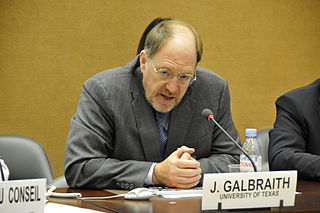Цитата Карла Сагана
Религии жестоки. Либо они не выдвигают утверждений, подлежащих опровержению, либо быстро переделывают доктрину после опровержения. ... в основе религиозного опыта лежит нечто удивительно сопротивляющееся рациональному исследованию.
Связанные цитаты
На самом деле никогда нельзя произвести убедительного опровержения теории; ибо всегда можно сказать, что экспериментальные результаты ненадежны или что расхождения, которые, как утверждается, существуют между экспериментальными результатами и теорией, только кажущиеся и что они исчезнут с развитием нашего понимания. Если вы настаиваете на строгом доказательстве (или строгом опровержении) в эмпирических науках, вы никогда не извлечете пользу из опыта и никогда не узнаете из него, насколько вы неправы.
Опыт Соединенных Штатов является удачным опровержением заблуждения, столь долго укоренившегося в непросвещенных умах благонамеренных христиан, а также в испорченных сердцах преследующих узурпаторов, что без законного включения религиозного и гражданского государственного устройства ни одно из них не могло бы существовать. поддерживается. Взаимная независимость наиболее благоприятна для практической религии, социальной гармонии и политического процветания.
оптимизм, н. Учение или вера в то, что все прекрасно, включая безобразное, все хорошее, особенно плохое, и все правильное, что неправильно. Его с большим упорством придерживаются те, кто наиболее привык к несчастному случаю попасть в невзгоды, и наиболее приемлемо разъясняется с опровержением - умственное расстройство, не поддающееся никакому лечению, кроме смерти. Это наследственное, но, к счастью, не заразное.
Я говорю, что вероучения, догмы и теологии — это изобретения ума. Природа ума состоит в том, чтобы осмысливать опыт, сводить конгломераты опыта к единицам понимания, которые мы называем принципами, или идеологиями, или концепциями. Религиозный опыт динамичен, подвижен, бурлит, бурлит. Но разум не может справиться с этим, поэтому ему приходится каким-то образом заключать религиозный опыт в тюрьму, закупоривать его. Затем, когда опыт успокаивается, ум намечает его и извлекает понятия, понятия, догмы, чтобы религиозный опыт мог быть осмыслен для ума.
Всеобъемлющая доктрина, будь то религиозная или светская, стремится охватить всю жизнь. Я имею в виду, если это религиозная доктрина, она говорит о нашем отношении к Богу и вселенной; в нем упорядочиваются все добродетели, не только политические, но и нравственные, включая добродетели личной жизни и все остальное. С философской точки зрения мы можем чувствовать, что она на самом деле не охватывает все, но стремится охватить все, и светская доктрина тоже.
Настоящее исследование — это огромная морально-преобразующая сила. Это не просто вопрошание и поиск быстрого ответа или объяснения, но процесс исследования — вопрошания, открытия — открывает в человеке что-то, что не было затронуто в нашей культуре. Каждый человек имеет в себе потенциал страстного поиска истины, и это преобразующая сила.
К сожалению, мы не полностью осознаем уровень резкой критики евреев и христианства в современном исламе или не хотим его принимать. Мы не хотим его принимать, потому что сделать это означало бы признать, что одна из великих мировых религий, насчитывающая более 1,4 миллиарда последователей, каким-то образом санкционирует геноцид, спланированный геноцид, как часть своей религиозной доктрины.




































